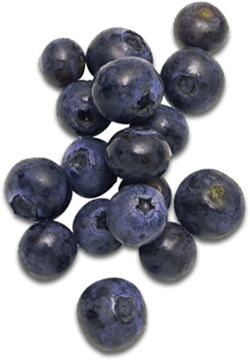no items to display
Eat Fruits and Vegetables, Be Happy? New Study Links Fruit and Vegetable Consumption With Happiness.
There’s a certain jolt of joy I get from biting into a perfectly ripe peach from my local farmers’ market or slicing into a luscious vine-ripened tomato from my garden. I always thought this was a temporary high — one that disappeared as soon as the juice was dried from my sticky fingers. But according to a new study, how many fruits and vegetables we eat daily may measurably impact how happy we feel.
Researchers from New Zealand recently published a study in the British Journal of Health Psychology which observes a link between eating more fruit and vegetables and feeling happier and more engaged in life.
The study followed 405 university students for a 13-day period during which they kept food diaries and filled out questionnaires designed to measure creativity, curiosity, and other aspects of psychological health. Subjects rated statements such as “Today I was engaged and interested in my daily activities” on a seven-point scale from “strongly disagree” to “strongly agree.”
The results? People who ate more fruits and vegetables reported higher levels of curiosity, creativity, and other positive emotions. They also felt more engagement, meaning, and purpose in their lives. “These findings suggest that fruit and vegetable intake is related to other aspects of human flourishing, beyond just feeling happy,” explains University of Otago psychologist Tamlin Conner.
Importantly, the results were not only applicable across people, but also across time. In other words, on days when participants ate more fruits and vegetables, they felt better than on the days when they skimped. That’s some pretty immediate feedback from the body!
While it’s possible that feeling more positive causes people to eat better rather than the other way around, researchers suggest the micronutrients in produce, particularly vitamin C, might be at work. Vitamin C helps the body make dopamine, a neurotransmitter that plays a role in motivation and engagement. Another factor could be that eating fruits and vegetables helps reduce inflammation, which may improve mood.
This is just another reason why growing your own produce makes sense. When it’s steps from your door, there’s no reason not to include healthy food in all your meals. I know from experience that gardening isn’t always easy, but there is something that can make it easier. Tower Garden!
Tower Garden is a highly efficient aeroponic growing system that allows you to grow a lot of produce in a little space. It has quite a few advantages over traditional gardening. First, it grows produce in about half the time of soil-based agriculture. Second, it uses just a fraction of the water and soil, so it’s an ecological alternative. Third, its compact design fits in just about any sunny spot outdoors (think patios, rooftops, terraces, balconies, decks, or porches), and assembly is easy. Fourth, there’s no weeding, tilling, kneeling, or getting dirty. Fifth, because it’s designed to last a lifetime, Tower Garden is actually a better long-term value than store-bought produce. And with this new research, who knows? It could even make you and your loved ones happier.
Have you ever thought about the relationship between your diet and your mood? Have you noticed a happiness lift from eating more fruits and vegetables? Share your experiences below.






